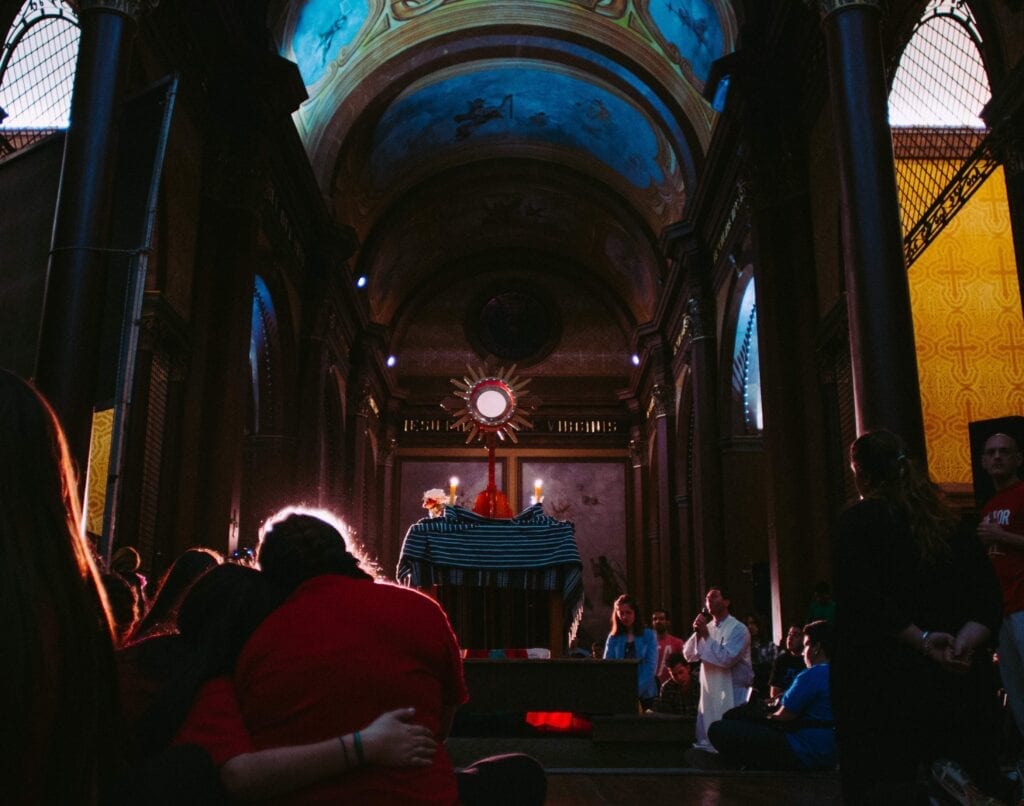As we approach the end of the liturgical year, the readings direct our attention towards the question of the return of Christ or the days of the Son of Man. Addressing his disciples Jesus speaks to them of the “day of the Son of Man”. The disciples were preoccupied by the knowledge of the time this would happen. However, Jesus draws their attention and ours to somethings more important.
While referring his disciples to the story of Noah and Lot,(Genesis chapter 6-9.) Jesus enumerates actions of ordinary life: eating, drinking, marrying, giving in marriage, buying, selling, planting and building. Jesus does not condemn these activities but he draws our attention to the fact that just as people in the days of Noah and Lot were so absorbed in daily activities that they did not see the flood and the destruction of their city coming, we also may be surprised by the day of the Son of Man if we allow ourselves to be overwhelmed by the activities of this world.
In the light of today’s gospel Jesus reminds us that our personal and collective history will come to an end one day. The day of the Son of Man will come suddenly and by surprise. When that day arrives, it will be useless to be attached to earthly possessions, to our houses, properties and fields. So how can we live fully in the present time without being swallowed up by it and falling into total oblivion of the return of the Son of Man?

I suggest we consider this Gospel as an invitation to develop an attitude of wisdom towards life. Life is fragile, and the return of the Son of Man, and our own end can come at any moment. It is better to live each day fully as an opportunity to love God more with all our heart and mind and develop selfless love for others. If you are troubled or traumatized by your past life, I suggest you entrust it to God’s mercy, the present life to His love and the future to His providence. We can also look at the past with gratitude, live the present time with passion for Jesus and to embrace the future with hope in his promise.
The disciples of Jesus wanted to know when what he said would happen. Jesus’ answer to them was a quote from the book of Job 39:30. The place and time of the return of the Son of Man will be known only after the event, and not before, as the vultures gather after discovering the corpses. The most important thing Jesus want us to do is to be ready and not to live in fear.
His teaching is feasible through spiritual vigilance. Let us remember that Jesus asks us to watch and pray so that we do not fall into temptation (Mt 26:41.) Spiritual vigilance also depends on our ability to read the signs of the times. Our world is saturated with bad news and without a vision of faith we risk sinking into depression or despair. The time we are in could be an opportunity to focus on what is most essential ;our relationship with God and our fellow human beings.
If we are worried and afraid of the future let us remember his Word: “I am with you always, until the end of time” Mt 28:20. Heaven and earth will pass away, but the Word of God will not pass away (Luke 21:33). Faith in divine providence will help us embrace the future with greater serenity and hope.
